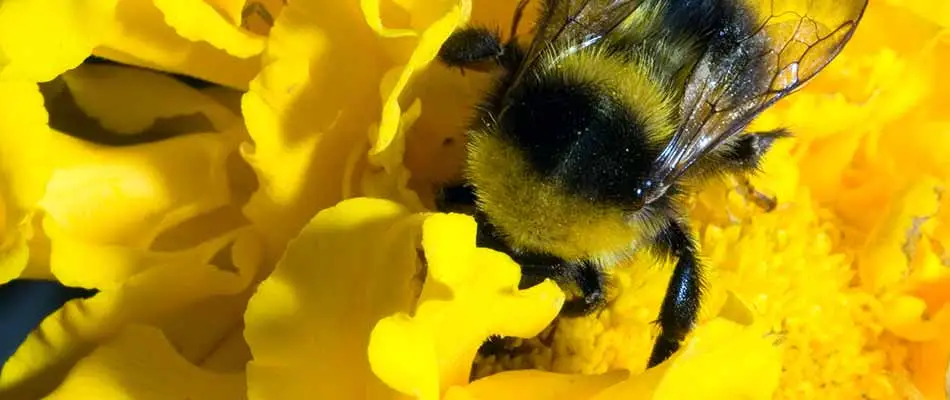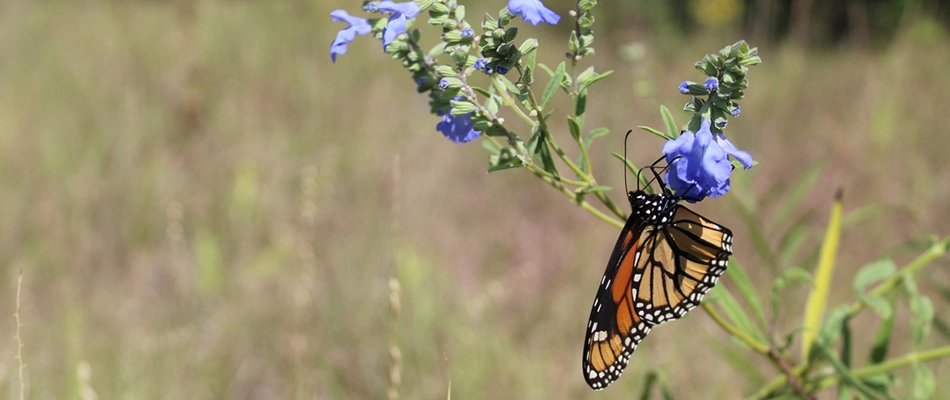At Outdoor Expressions Landscaping, we are keenly aware of and appreciate the vital role that pollinating insects like honey bees, wild bees, and butterflies play. They are essential for creating and maintaining ecosystems that many animals rely on. In fact, pollinators are responsible for pollinating over 75% of the plants that we use for food, drinks, medicines, and more.
Our mosquito control efforts are meant to protect our customers from mosquito-borne diseases, however, we are incredibly aware of the harm that these treatments could potentially cause for our pollinators. We fully support science-based efforts that protect pollinator populations and are thankful for these rules and regulations that are implemented to look after our important pollinators.
Our team is dedicated to staying informed of the rules regarding mosquito control applications. We use an Integrated Pest Management approach, EPA-registered pesticides, and we have created our own company rules so that we can protect our customers and the pollinator population at the same time.
We abide by the rules listed on each product label to help reduce harm to pollinators.
The labels on our products are EPA-regulated and inform you of the steps you can take to best protect pollinators. For example, a product label could say, "Do not apply to flowers in bloom and notify beekeepers within 1 mile of the treatment area at least 48 hours before application." These rules are in place to reduce harm to our pollinators and our licensed crew members always abide by them.
The IPM approach requires 5 key practices including communication and record-keeping.
An Integrated Pest Management (IPM) approach means managing pests such as mosquitoes while also minimizing the overall economic, health, and environmental risks. An IPM approach is the most effective and least risky way to reduce the mosquito population on your property. IPM has five different key practices that our team is sure to always follow:
- Inspection and monitoring: This includes regular monitoring of the landscapes that we treat to accurately diagnose pest problems and where they are coming from.
- Sanitation, pest-proofing, and exclusion: Mosquito food and water sources and areas that they like to harbor should be identified and eliminated as best as possible.
- Communication: We have a conversation with our clients about how areas on their property might be inviting mosquitoes to stick around. These areas include birdbaths, wading pools, rain barrels, and landscape water features.
- Record keeping: Document all pest complaints, inspection results, and any time we apply pesticides.
- Low-risk pesticides: Always use products that have active ingredients with low toxicity levels.
There is strong evidence provided by the CDC and EPA that Integrated Pest Management is effective in protecting our pollinating insects when applied properly.
Our company also has our own rules to abide by in order to protect pollinators.

Aside from always using an IPM approach, our company also has its own rules and regulations. Each crew member must follow these extra steps so that we as a company can do our part to help limit the exposure to the important pollinators in our environment.
- We always use EPA-registered pesticides, as it is one of the safest and fastest ways to combat an outbreak of mosquito-borne illnesses being transmitted by adult mosquitoes.
- Our crew uses a backpack sprayer to target areas where mosquitoes harbor instead of an overall, blanket treatment. This prevents our products from being sprayed anywhere that pollinating insects might be present.
- We always apply our treatments in the early morning hours. This is because bees are typically still in their hives around this time and it will help reduce or even completely prevent their exposure.
Sign up for our mosquito control services for a safe and effective treatment.
At Outdoor Expressions Landscaping, we fully understand that there is a legitimate concern for the application of pesticides because of the harm it can cause to pollinators. Although there is always a risk when applying pesticides, our team not only follows the rules enforced by state and federal law, but we also abide by the rules set by our own company. As a team, we are constantly working towards doing what we can to help protect our customers and the important pollinator insects.
We service the East Lansing, Okemos, and Haslett, MI areas. If your property is nearby and is in need of some mosquito control, call us at (517) 333-7999. Our team will work with you to create a personalized IPM plan so that we can safely eliminate the risk of spreading mosquito-borne diseases while also keeping our pollinators safe.




Comments (0)
Thanks for your comment!
Thanks for your feedback! Your comments have been successfully submitted! Please note, all comments require admin approval prior to display.
Error submitting comment!
There is a problem with your comment, please see below and try again.